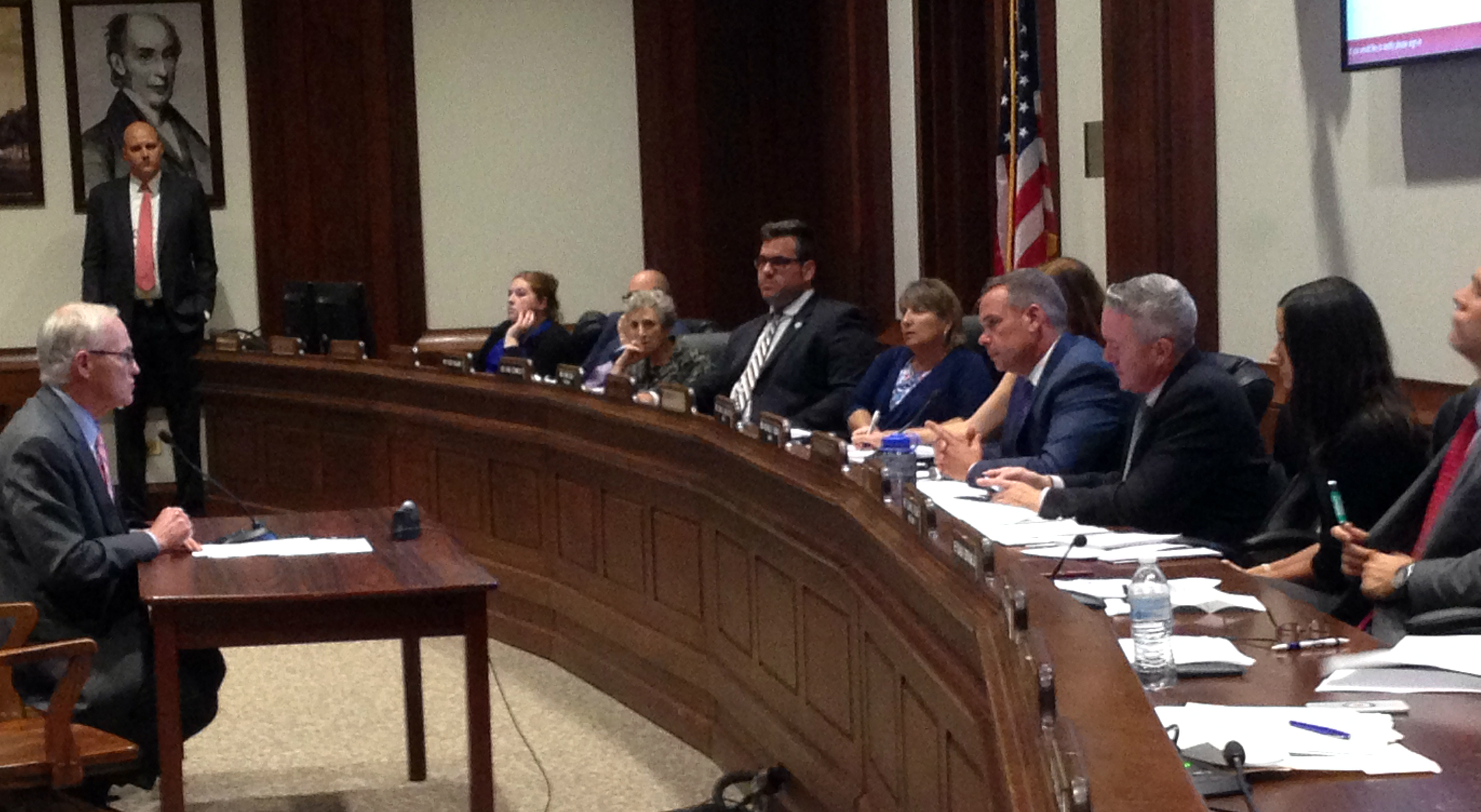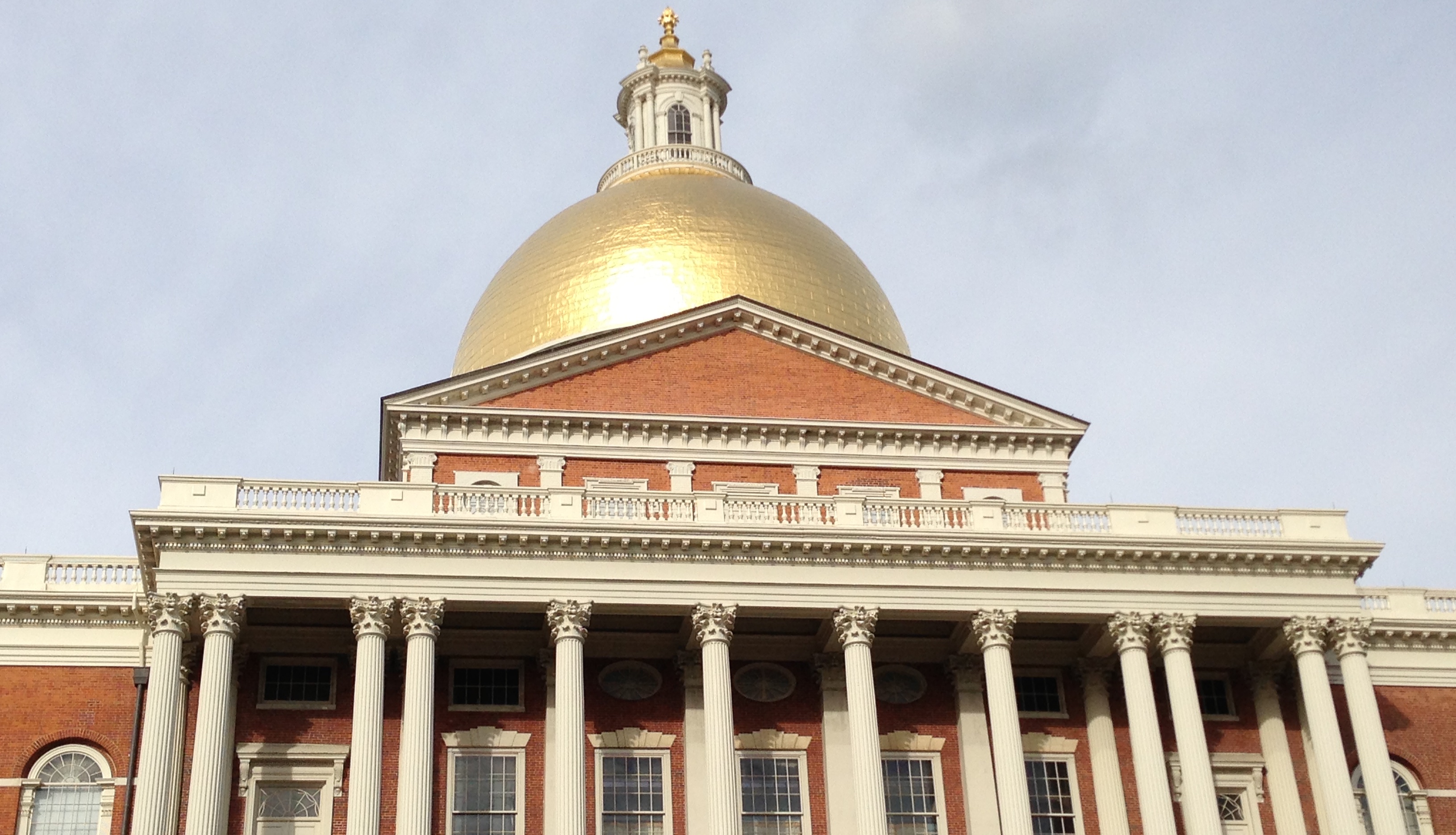Fossil Fuel Lobby Is Targeting the State Senate’s Climate Bill
Waltham Patch
In January of this year, the Massachusetts State Senate passed An Act Setting Next-Generation Climate Policy, now pending before the House of Representatives. The Senate’s approach to reducing greenhouse gas emissions is radical not in its ideology but in its seriousness; we’re determined to get emissions down across the Massachusetts economy, transportation and buildings included.
We should add that the senators who wrote the legislation sat down with a good many commercial interests, listened to what they had to say, and made changes. At the time of the bill’s final passage — with the votes of both Democrats and Republicans, and with only two dissents in the 40-member Senate — its seriousness of purpose seemed to impress the business community without unsettling it.
The Fossil Fuel Lobby Is Targeting the State Senate’s Climate Bill. We Wish to Respond.
For Immediate Release
On Thursday, June 25, an organization named the Mass Coalition for Sustainable Energy criticized Massachusetts State Senate climate legislation now pending before the House of Representatives. In response, State Senators Mike Barrett and Jason Lewis issued the following statement.
In January of this year, the Massachusetts State Senate passed An Act Setting Next-Generation Climate Policy, now pending before the House of Representatives. The Senate’s approach to reducing greenhouse gas emissions is radical not in its ideology but in its seriousness; we’re determined to get emissions down across the Massachusetts economy, transportation and buildings included.
We should add that the senators who wrote the legislation sat down with a good many commercial interests, listened to what they had to say, and made changes. At the time of the bill’s final passage — with the votes of both Democrats and Republicans, and with only two dissents in the 40-member Senate — its seriousness of purpose seemed to impress the business community without unsettling it.
But that was then. With the onset of COVID-19, conservative elements are eager to exploit an opening. Two years ago, an investigative report in the Huffington Post blasted the then-new Mass Coalition for Sustainable Energy as a “front for gas interests,” identifying, as major funders of the group, Eversource, National Grid, and Enbridge, the pipeline conglomerate behind the natural gas compressor station project in Weymouth.
Last week the Coalition surfaced anew, patching together a limp critique of Next-Gen that seems less about the bill and more about the Coalition’s longer-range objective, which is to keep fossil fuels at the heart of Massachusetts energy policy. In a letter dated June 25th, addressed to leaders of the House, the fossil fuel interests and real estate developers led off with long-winded assurances of their objectivity. Then they got down to brass tacks, telling readers that “sources of energy like natural gas have important and positive roles” to play, since “renewable sources cannot fill the void.”
Interesting. Especially since the Senate bill hardly mentions natural gas per se, focusing instead on a widely-accepted bottom line — the need for truly dramatic reductions in Massachusetts emissions. If this means relegating natural gas and its various hybrids to a much-reduced backup role, so be it. As for any voids that may be left by today’s renewable resources, we certainly intend to see them filled — by tomorrow’s renewable resources. Clean-energy solutions like heat pumps are already better than fossil fuel lobbyists care to admit, and the Senate wants them to be better still — one good reason we expand the mission of the Massachusetts Clean Energy Center.
The Senate’s basic insight is this: Its considerable contributions to first-generation policy notwithstanding, the 2008 Global Warming Solutions Act has generated significant emissions reductions in the electric power sector only. Today, transportation, buildings, and industrial processes account for 79% of Massachusetts greenhouse gases. After 12 long years, it’s clear that a law written in 2008 cannot drive reductions in these sectors, nor keep us on the emissions track we need to travel.
To get climate policy moving again, the Senate bill sets “net zero” emissions as Massachusetts’ overall greenhouse gas limit for the year 2050. This is already policy in California and New York; in fact, it’s already policy in the Baker Administration. The Senate takes the logical next step, baking net zero into law so that future governors will keep a steady course.
A 2050 objective set, the Senate then addresses the demanding and multi-faceted challenge of actually reaching it. For one thing, we appreciate that this far-off goal, however imperative, will not motivate near-term change, so we direct the Executive to set interim limits at five-year intervals starting in 2025. We insist on sector sublimits, too, so that transportation, buildings et al are asked to hit custom-fit benchmarks, and progress can be readily checked.
And, yes, among many other provisions, the Senate proposes a Climate Policy Commission, not to make policy (the prerogative of the Legislature) nor to carry it out (the province of the Executive), but to serve as a guardian of the future for younger generations. Job One for the Commission is to tell us if we’re on track in bringing down emissions. Job Two is to give us objective advice on what to do next. (Omitted altogether from its mission is any power to make rules or regulations — for instance, to change the state building code, a crucial reform we assign to the Massachusetts Department of Energy Resources.)
We want the Commission to consist not of special interests (in its June 25th letter, the fossil fuel lobby demands a seat!) but of engineers, data analysts, and scientists. We want it insulated from political pressure and made up of the most authoritative and credible Massachusetts voices we can find.
And, of course, the Commission should listen. Which is why the Senate gives it an advisory council broadly representative of the public and specifically including the voices of low-income and moderate-income communities, displaced workers, industry and manufacturing interests, young people, the green economy, transportation, agriculture, housing, and local government.
Across the country, fossil fuel interests are mounting counter-attacks on common-sense climate initiatives that once seemed certain to become law. And, yes, it can happen here, in Massachusetts. Unless we fight back.
- END –
OpEd: Massachusetts Senate Approves Vote-by-Mail Options
Bedford Citizen
“It was disturbing to see in-person voting produce chaos in Wisconsin,” said local State Senator Mike Barrett. “People had to risk getting sick to cast a ballot. For us, in Massachusetts, revamping elections almost overnight has not been without its problems. But we’ve adapted and gotten the job done.”
Voters Will Have Options during the Pandemic
For Immediate Release
(6/18/2020) – By the terms of new legislation approved this past Tuesday in the State Senate, every eligible Massachusetts resident will have the option of voting by mail, a history-making first. The bill, which passed unanimously, comes amid widespread safety concerns about in-person voting during the pandemic.
The legislation applies to both the September 1st state primary and the November 3rd general election.
“It was disturbing to see in-person voting produce chaos in Wisconsin,” said local State Senator Mike Barrett. “People had to risk getting sick to cast a ballot. For us, in Massachusetts, revamping elections almost overnight has not been without its problems. But we’ve adapted and gotten the job done.”
The Massachusetts bill contains a number of provisions, including:
- Implements an early vote-by-mail system: An application to receive an early voting ballot for the primary and general election will be mailed to all registered voters by July 15th. Both applications and ballots will be postage-paid.
- Creates early voting for the primary and expands early voting periods: For the first time in Massachusetts, early voting will be available for the state primary, to take place from Saturday, August 22nd through Friday, August 28th. Early voting for the general election would take place from Saturday, October 17th to Friday, October 30th. Early voting hours would vary according to the size of the municipality in order to give voters ample opportunity to participate while not overburdening the election departments of small towns.
- Tasks the Secretary of State with creating an online portal: The bill requires Secretary Galvin to create an online portal so that voters can request an early or absentee ballot electronically. It must be operational by October 1st, in time for the general election.
- Ensures early voting options for voters with disabilities: The bill charges Secretary Galvin with providing options for voters who require an accommodation.
- Expands absentee voting: The bill provides for absentee voting by any person taking precautions related to COVID-19. Voters will also be able return absentee ballots via a secure drop box, in addition to the in-person and by mail submission options available for past elections.
- Provides tools to assist clerks: Acknowledging the increased burden these options may place on municipalities and clerks, the bill provides for several accommodations to make the logistics of processing votes easier.
- Makes in-person voting more efficient: The bill allows municipalities to consolidate polling places and eliminate the check-out table at these locations, allowing for a more efficient process and fewer poll workers.
The Senate bill must now be reconciled with similar legislation passed by the House of Representatives. Legislators do not expect the differences to be difficult to reconcile.
###
Some Things Worth Doing Now
The Concord Journal
Your country, your state, maybe the neighborhood in which you live, are engulfed by three crises at once: climate change, a pandemic, and social unrest triggered by murder and racial injustice. Your mind reels. Your heart breaks.
What to do? What you cannot do is give up. At a demonstration to protest the death of George Floyd, someone held a sign: “We didn’t come this far to only come this far.”
Just so. You get yourself together. You take a deep breath. You look around for things worth doing now.
Things worth doing now
Senate and House Pass Bill to Increase Health Data on COVID-19
For Immediate Release
The State Senate and House has moved to increase statewide, publicly-available data as it relates to the coronavirus. The legislation, which passed with bipartisan support, aims to promote equity and transparency as Massachusetts confronts the COVID-19 pandemic.
The bill also establishes a task force to study and recommend policy to address health disparities for underserved and underrepresented communities during the pandemic. After receiving favorable votes in the Senate and House, the bill has advanced to the governor’s desk.
“Dr. Fauci reminds us that to fight the pandemic we have to follow the science,” said State Senator Mike Barrett (D-Lexington). “Science depends on good, rigorous data. In passing this bill, better data to guide decisions is what we’re driving at.”
Under the bill, the state Department of Public Health is required to compile, collect, and issue daily online reports on the number of people tested for COVID-19. Data collection reports will include all positive cases, hospitalizations and deaths along with the gender, race, ethnicity, primary residence, occupation, disability, age, and primary language of each case.
The legislation also requires that daily reports include data and demographic information from municipalities and counties with more than 25 positive cases.
Importantly, the bill contains provisions to ensure more information from elder care facilities. “The situation in elder care facilities is catastrophic,” said Barrett. “We need all the information we can get.”
Sen. Barrett, who has called for more information from state and county correctional facilities, says the bill advances the issue in that respect, too. Under the new legislation, the state’s Department of Public Health must also publish daily updates on the number of COVID-19 positive cases and mortalities among individuals who are incarcerated. The department will also be required to publish on its website, for each state and county correctional facility, the total number of residents per correctional facility; and the number of residents within each facility who are housed in a cell either alone or with another person.
In addition to requiring greater data collection, the bill requires the Executive Office of Health and Human Services to describe the actions it is taking to address disparities identified through the data collected.
In response to increasing concerns about the disproportionate impact of COVID-19 on communities of color and disproportionately impacted populations, the legislation also establishes a task force to study and make policy recommendations for how to address these health disparities. The task force is required to issue an interim report by June 30, 2020, with a final report due August 1, 2020.
###
Next steps for Waltham’s 240 Beaver St.: Council approval ‘is a huge victory’
Waltham Tribune
“A year ago, the survival of the Field Station was in doubt,” said state Sen. Mike Barrett in a statement. “The nonprofit tenants, all involved with heathy eating, sustainable local agriculture, and what you might call food justice, faced eviction. But the Greater Waltham community rallied. Residents demanded that the farm be preserved and the tenants be protected.
“Thanks to the Mayor, the City Council, and the tenants for working together, we took a giant stride forward,” he added.
Rep. John Lawn, Barrett, and Rep. Thomas Stanley will be guides for the legislation to move through the state House and Senate.
“What remains, importantly, is passage of some enabling legislation,” Barrett said in a statement. “I look forward to working with Rep. Lawn to get that final piece done.”





